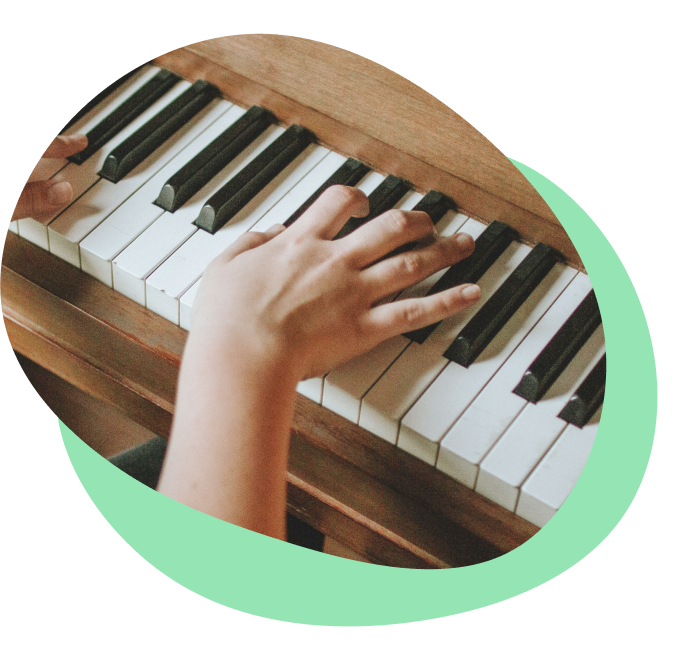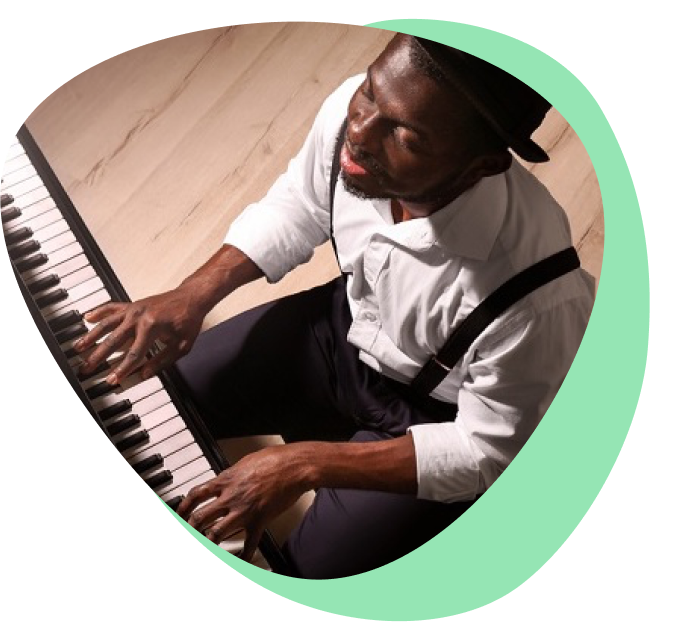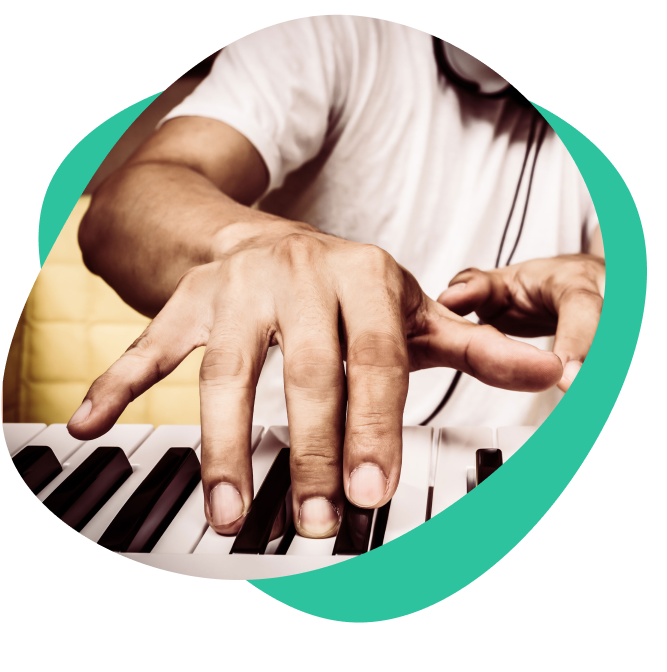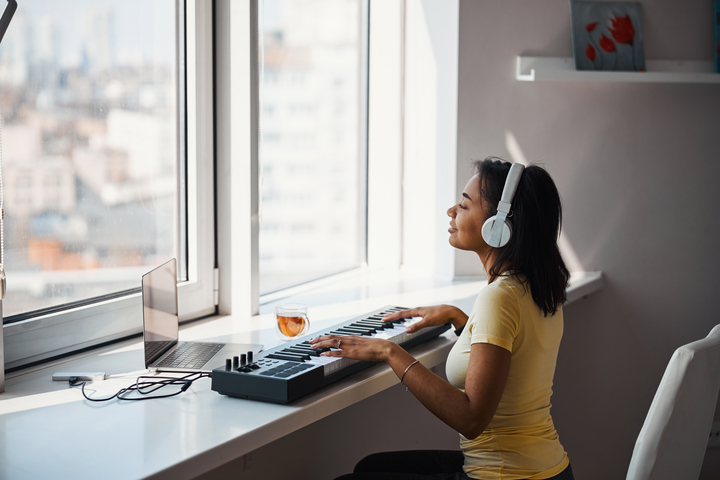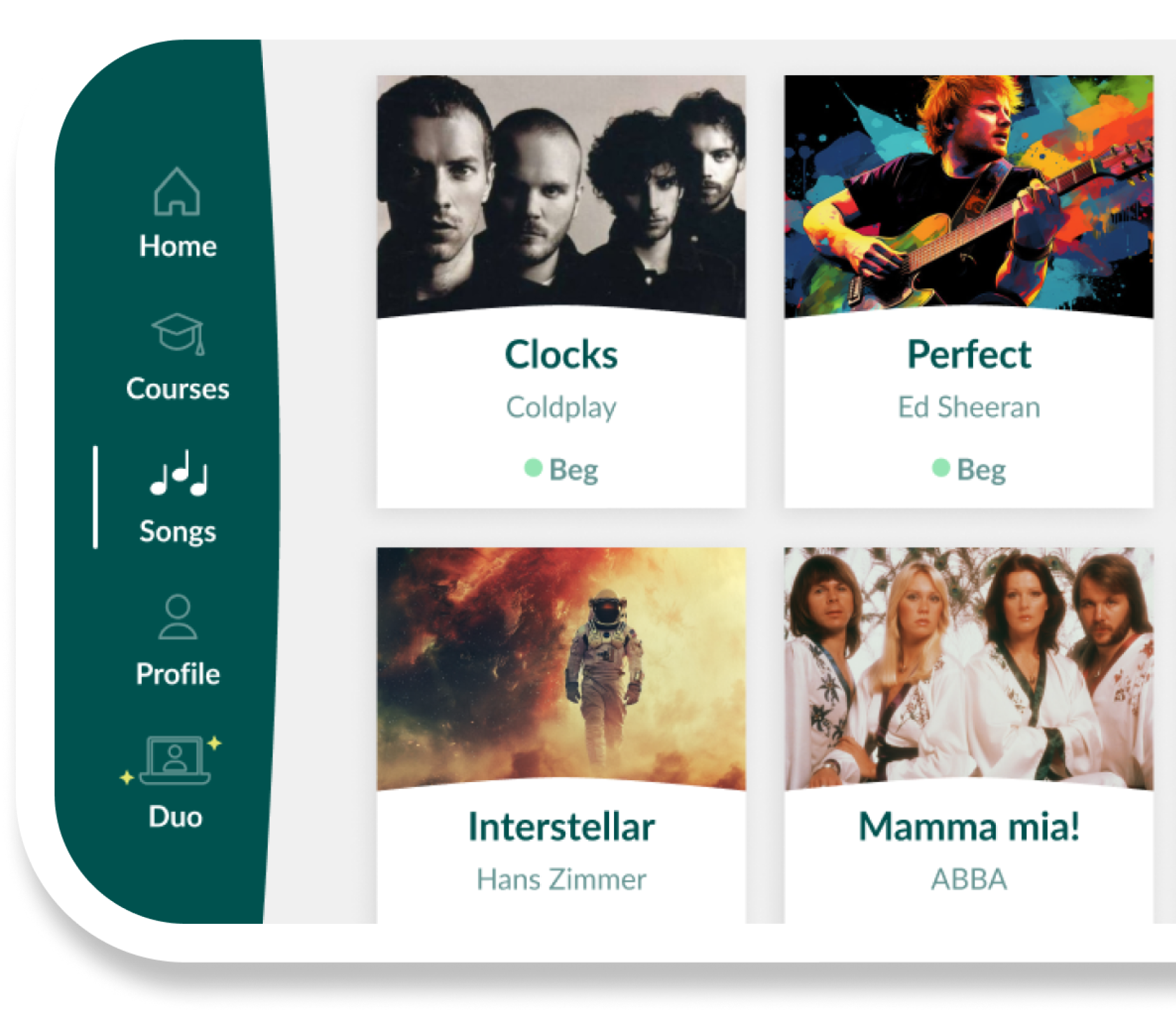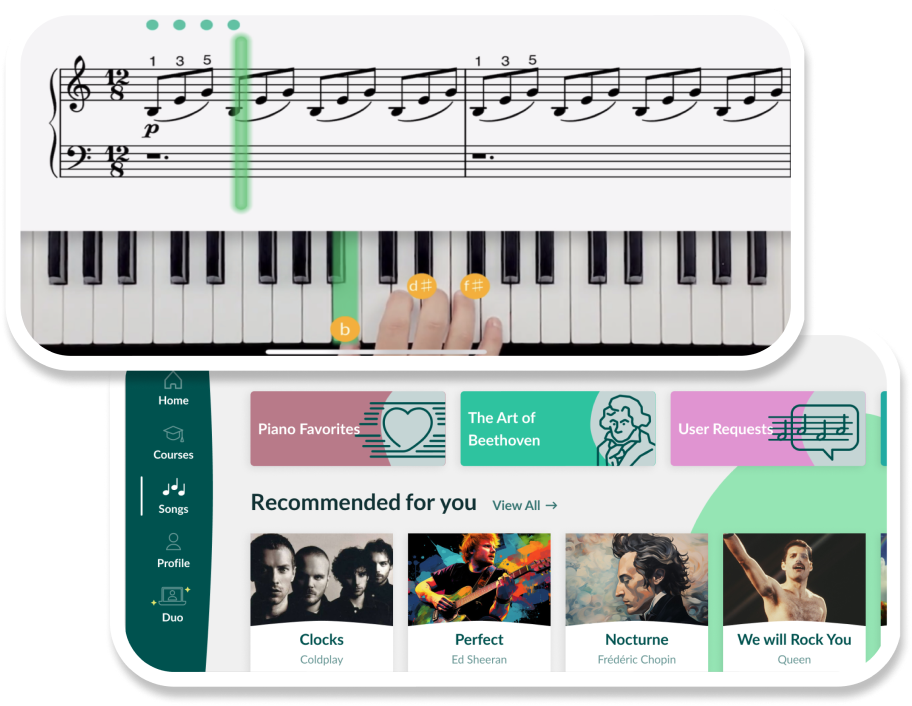Learning a musical instrument is one of the most rewarding experiences of a lifetime. However, it can also be one of the most challenging. At the beginning, you might feel overwhelmed and out-of-control. There are so many new words to learn and new movements to make. Eventually, you might hit a plateau in your practice and begin to feel bored or unmotivated. These feelings are totally normal. How you react to them, however, is extremely important.
In this article, we will look at a few different reasons people feel like giving up on music and work on some strategies you can use to beat them in your own practice!
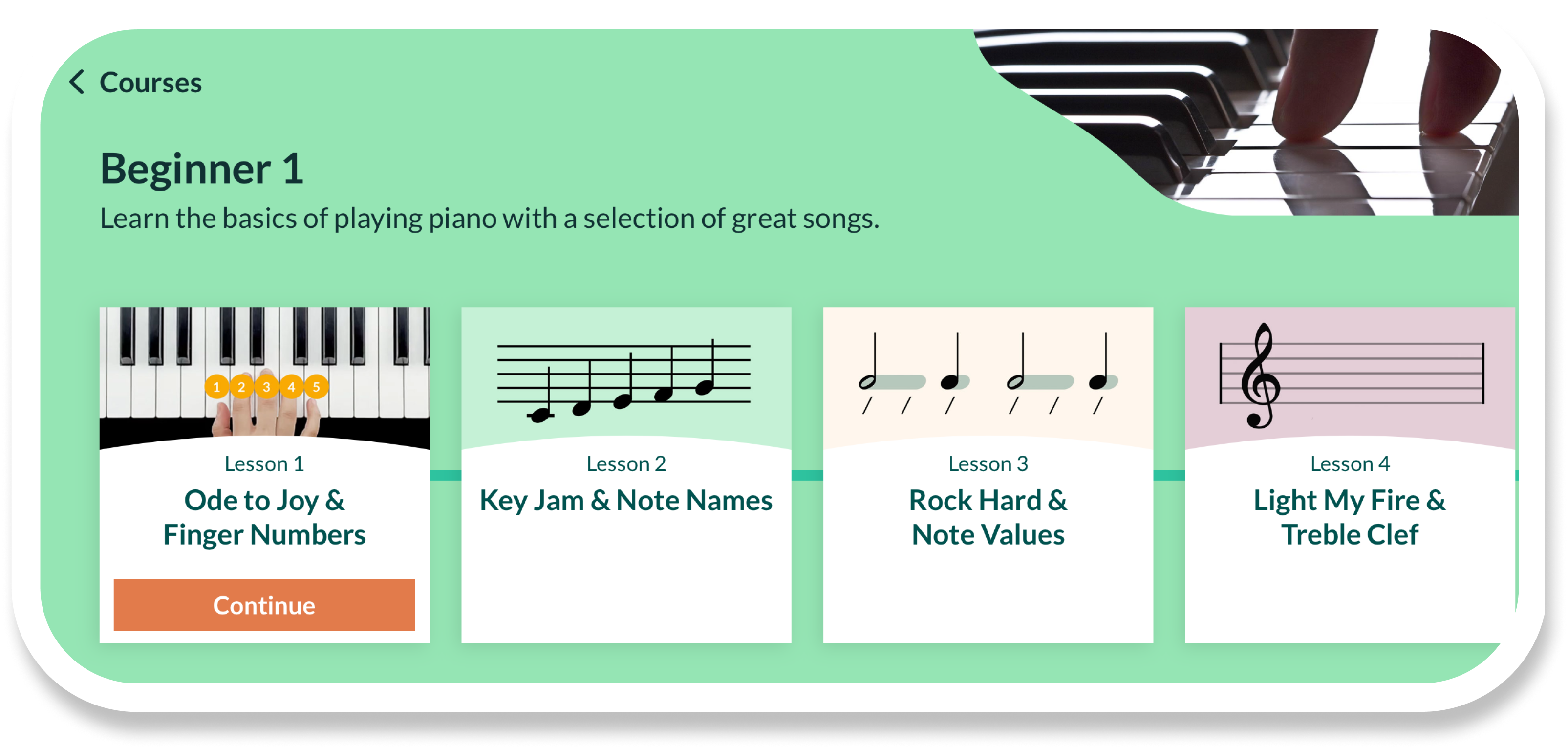
You stop having fun with music
Feeling forced to practice an instrument is a quick way to lose motivation to play music. This is especially true for children, but can be a major drag for adults as well. Nobody likes to feel forced to do anything and piano practice should feel relaxing and inspiring, not heavy and stultifying. Many people feel like giving up on music because they stop having fun.
Keep this in mind as you develop your piano skills. Here are some strategies to try out:
- Try to incorporate fun activities into your practice every time you play.
- Don’t be too heavy-handed with yourself about your practice
- Find ways to incorporate music you love to play and you will never stop having fun!
You set unrealistic goals for yourself
Another reason people often end up giving up on music is because they set unrealistic goals for their progress. Not every pianist is going to play Chopin’s Fantasie Impromptu or improvise like Oscar Peterson or Bill Evans. Setting unrealistic goals for yourself is an easy way to set yourself up for disappointment and a quick way to discourage your creativity.
- Be realistic in your approach to your progress on the piano
- Set a balanced structure for music and life
- You will be rewarded with solid piano skills that you can be proud of and enjoy.
You let your fear of mistakes overwhelm you
Making mistakes is perfectly natural and should be expected when learning anything, whether you have worked for 25 years or 25 days. Don’t let the fear of messing up stop you from learning how to play the piano. Many great ideas come from mistakes. You might find your greatest original composition from a mistake you made learning a more difficult song!
- Mistakes open us to our humanity. Everyone makes them, but not everyone learns from them.
- Use your mistakes as a tool to learn how to become a musician
- Don’t fear them! Don’t give up, you got the music in you!
Your instrument isn’t in tune
While your instrument should not be used as an excuse for not practicing, having an inspiring instrument that you love to play is incredibly powerful. Each piano feels different, resonates differently, and has a different character.
- If you have a digital piano with unweighted keys, maybe you should try a keyboard with weighted piano keys.
- If you have only practiced on a digital piano, maybe you should try to find an inexpensive acoustic piano.
- You could experiment with different patches or presets on your electronic instrument or investigate the world of synthesizers.
- Having a proper instrument that inspires you to play is a big key to your success!
You can’t play the songs you want
Many beginning piano books are boring. They don’t teach you actual music and if you don’t persevere past a certain point, you will likely get bored and quit. This is a big problem that is easily avoidable by learning the songs you want to play! There is no shortage of music books in the world for all difficulty levels.
- Don’t let a boring beginners method book get in the way of all the benefits of music education you will gain
- Stick with your piano practice! Learn the songs you want today!
You have a lack of encouragement
It might seem less obvious, but a lack of encouragement is a big reason people quit playing music. After all, if you have no one to share your talents with, what is the point? Unless you are singularly focused and enjoy the piano for yourself only (which many people do), having encouragement in your practice is hugely beneficial to your progress.
Whether that comes from an inspiring teacher, a supportive friend or family member, or a patron at the local coffee shop where you just played an open mic, having some positive feedback is a great reward for your efforts. It makes you feel good! And, will provide you with powerful creative fuel to continue your efforts. So when you feel down, tell yourself “I won’t give up piano.” You can’t say you can’t play if you get some positive encouragement, so get out there and share your skills with the world today!
Bringing it all together
Learning a musical instrument is a skill that everyone on Earth should have the opportunity to do if they desire to. Music is a powerful force and learning how to play with it, even on a basic level, will enrich your life in many ways, both obvious and hidden. The key is to remember to always have fun. Whether you need to add a few piano games to your practice, or just need a little guidance to your study, Skoove has many great lessons and tutorials to get you where you want to be with music. With over 400 lessons to choose from and a free, 7 day trial, Skoove is an awesome tool to incorporate into your practice. Check it out today and see how much fun you can have!
Author of this blog post

Eddie Bond is a multi-instrumentalist performer, composer, and music instructor currently based in Seattle, Washington USA. He has performed extensively in the US, Canada, Argentina, and China, released over 40 albums, and has over a decade experience working with music students of all ages and ability levels.




